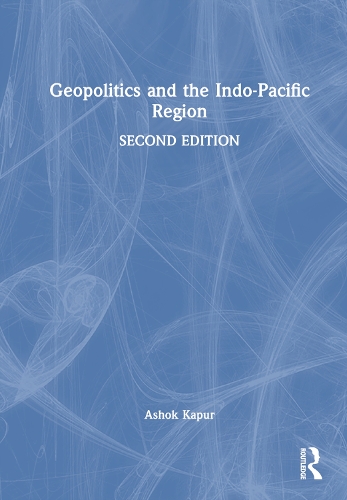
| 著者・編者 | Kapur, Ashok, |
|---|---|
| 出版社 | (Routledge, UK) |
| 出版年 | 2024 |
| ページ数 | 224 pp. |
| ニュース番号 | <721-645> |
Exploring geopolitics of the Indo-Pacific Region, a major hub of global, economic, commercial, military, diplomatic, and cultural activities in the 21st century, this textbook provides students with an introduction to the existing debates, frameworks, and issues surrounding the Indo-Pacific.
The second edition has been revised, updated, and expanded to explain the major build-up of deterrence hubs during 2022-2023 in the Indo-Pacific Region (IPR). The hubs have a clear focus on North Asia (Japan and South Korea), the Taiwan Strait and Taiwan and the South China Sea (the Philippines, Vietnam, and Australia), and India and the Indian Ocean littoral areas (the Persian Gulf and the Bay of Bengal). This edition takes into account the effects of the Ukraine-Russia and Israel-Hamas/Iran proxies' conflicts on the build-up of Russia-China-North Korea-Iran ties and the naval projections by China and Russia in North Pacific, off the Alaska coast, and in relation to Myanmar and Bangladesh and the Gulf/Red Sea areas. Within the purview of maritime security and NATO, the present century is critical with the introduction of missiles and nuclear submarine technology into IPR and by the fragmentation of arms control and nuclear and missile non-proliferation arrangements of the 1960s-2000 period. This volume predicts that China's oft-proclaimed rise to global hegemonic status is not inevitable because of its many economic-social problems and foreign policy dilemmas. Nor is World War III inevitable because no one seeks unlimited warfare, but the regions in conflict will likely remain on a low boil. However, problem-solving and crisis resolution will remain problematic, keeping the 21st century at its toes, due to the inability of regional powers to unite for the common good.
Complete with a list of further reading, Geopolitics and the Indo-Pacific Region fills a gap in the market and will be of great interest to upper-year-level undergraduates, postgraduate students, and researchers studying international relations, IPR geopolitics, Asian politics, and Asian security studies.